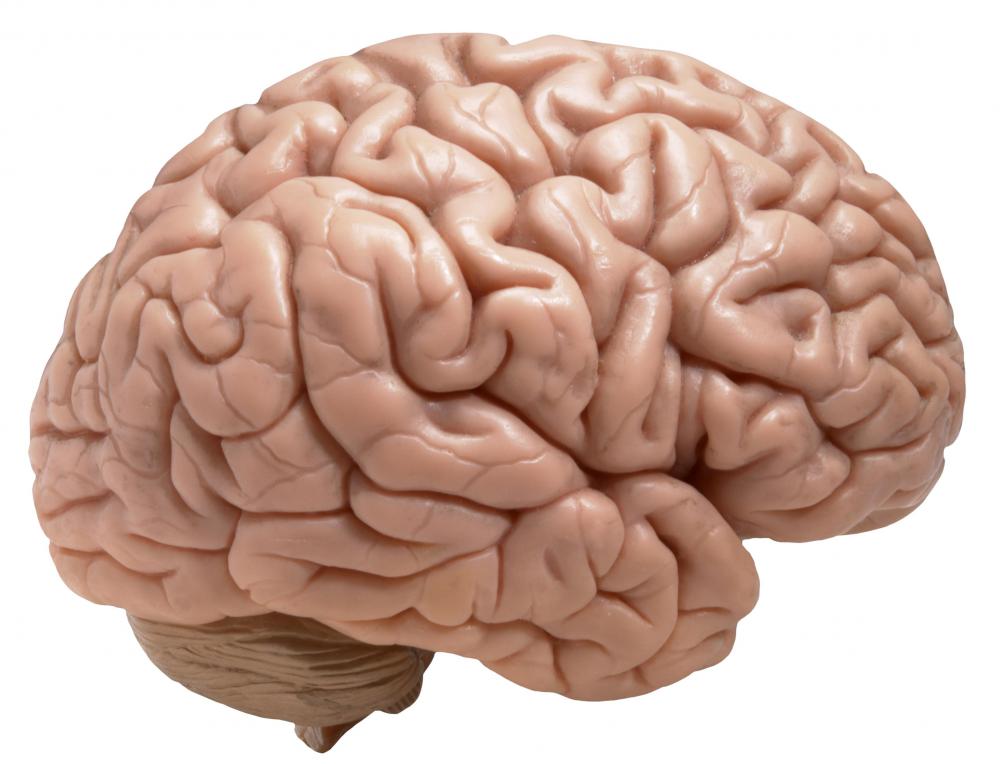At WiseGEEK, we're committed to delivering accurate, trustworthy information. Our expert-authored content is rigorously fact-checked and sourced from credible authorities. Discover how we uphold the highest standards in providing you with reliable knowledge.
What are the Different Extrapyramidal Symptoms?
The extrapyramidal system is a neural network within the brain which is part of the motor system, and has a prime role in coordinating body movement. This system is highly dependent on the neurotransmitter dopamine to function correctly. Because many antipsychotic medications affect the dopamine network, these medications can cause extrapyramidal symptoms such as muscle rigidity, repetitive muscle movement, and involuntary movements.
Extrapyramidal symptoms, also called EPS, develop primarily due to a disruption in dopamine pathways in sections of the brain involved in the motor system. This disruption leads to reduced availability of dopamine in the parts of the brain which regulate and coordinate movement. The result is symptoms which relate to loss of muscle control, such as muscle twitching and tremors.

Many types of older antipsychotic medications cause extrapyramidal symptoms, including haloperidol and chlorpromazine. These medications work by suppressing the activity of dopamine, which is overproduced in the brains of people with schizophrenia and other psychosis disorders. Extrapyramidal side effects occur due to this dopamine suppression, with the risk of side effects increasing over time for as long as medication is taken.

In some people, extrapyramidal symptoms may occur within hours or days of taking the first dose of an antipsychotic drug; for other people, symptoms may not manifest for months or years. Typical side effects include muscle rigidity, tremors, twitching, muscle contractions, involuntary muscle movements, and restlessness. Other common symptoms involve the face, and may include drooling, involuntary eye movement, and an impassive, mask-like facial expression.

Extrapyramidal symptoms can develop for reasons other than the use of antipsychotic drugs. People with Parkinson’s disease, for example, develop certain types of extrapyramidal side effects due to the death of neurons involved in the secretion of dopamine. This cell death leads to dysfunction of the extrapyramidal neuronal network and a symptom called bradykinesia, in which movements are carried out slower than normal.

People who experience extrapyramidal side effects as a result of taking antipsychotic drugs may be able to reduce the occurrence of their symptoms. Typically, symptoms are managed by reducing drug dosage or switching to a different medication. Many new-generation anti-psychotic medications affect dopamine pathways in different ways, so switching to a newer medication may reduce symptoms. Alternatively, a doctor may prescribe additional medications to reduce side effects of the antipsychotic drug.

For people with Parkinson’s disease and other disorders which affect dopamine pathways, a dopamine precursor called L-dopa is one of the most common medications used as treatment. This medication is used because dopamine itself cannot cross the blood-brain barrier. L-dopa is able to cross the barrier, and as a dopamine precursor it is metabolized into the essential neurotransmitter once in the brain.
AS FEATURED ON:
AS FEATURED ON:

















Discussion Comments
The increased use of antipsychotic drugs to treat other problems, such as chronic pain, has also led to more cases of these symptoms and other problems. If your doctor wants you to take any drug at all, make sure you have the information of what it is for, what it does, and what side effects it might have.
These sorts of extra pyramidal symptoms are just some of the risks of antipsychotic drugs. Some people actually react so negatively to the change in brain chemistry that the drugs can actually have an opposite effect, leading to even worse depressive or other emotional problems. This is one of many reasons why people should think carefully before taking these drugs.
Injury to your extrapyramidal motor system does not cause paralysis of voluntary movement and general spasticity. Why is that?
Post your comments